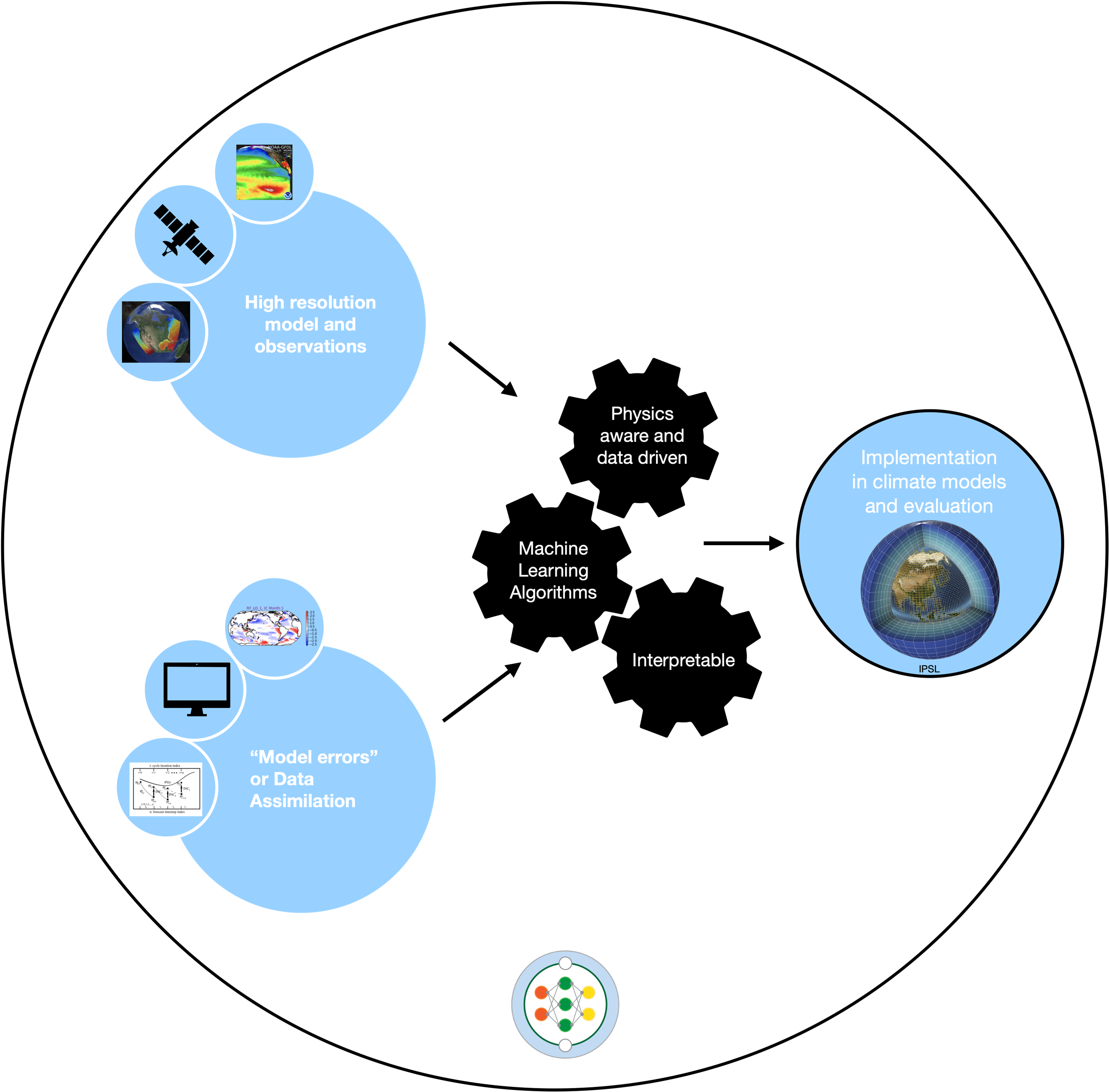Research themes
Our goal: leverage AI for scientific discovery in climate physics, towards more reliable climate projections.

Talks
Your can find most of our past talks, and much more, on our Youtube Channel
Themes of the talks:
- 📊 Big data
- 💻 Machine...



